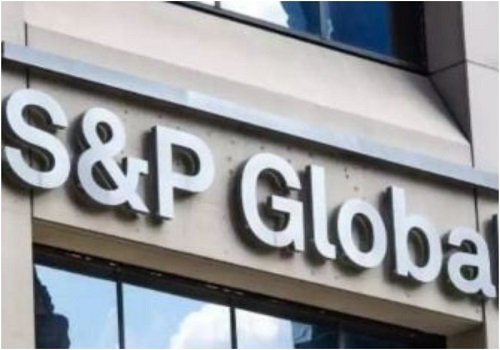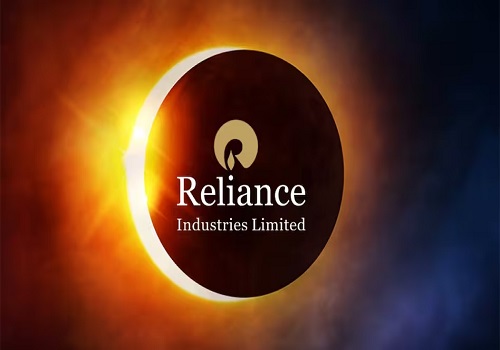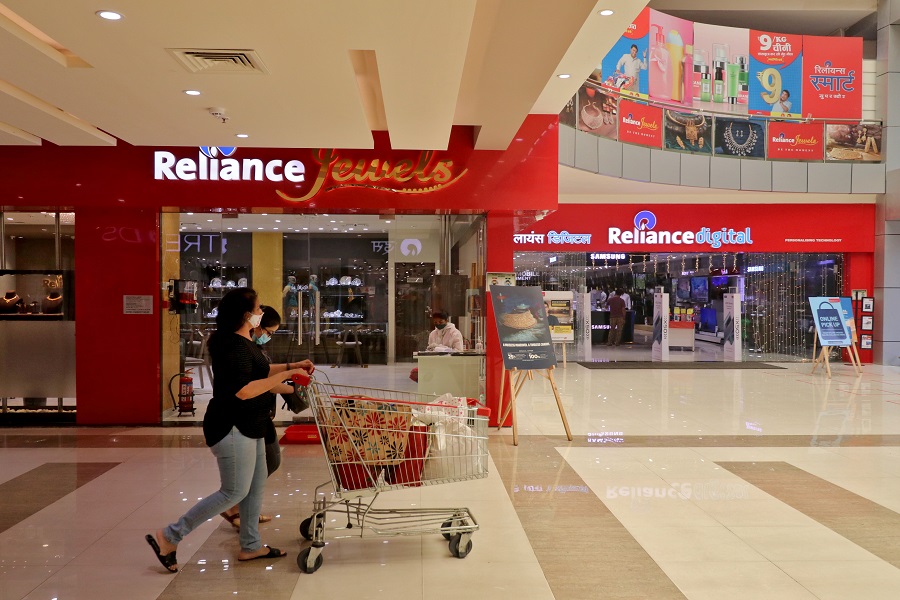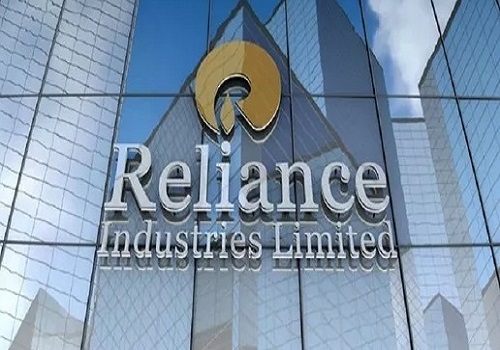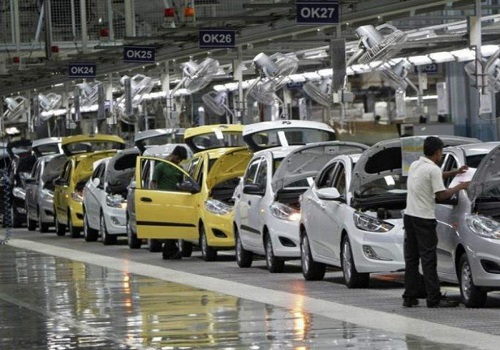Indian Phosphate coming with IPO to raise Rs 67.36 crore

Indian Phosphate
- Indian Phosphate is coming out with an initial public offering (IPO) of 68,04,000 equity shares in a price band Rs 94-99 per equity share.
- The issue will open on August 26, 2024 and will close on August 29, 2024.
- The shares will be listed on SME Platform of NSE.
- The face value of the share is Rs 10 and is priced 9.40 times of its face value on the lower side and 9.90 times on the higher side.
- Book running lead manager to the issue is Beeline Capital Advisors.
- Compliance Officer for the issue is Khushboo Sharma.
Profile of the company
Indian Phosphate is mainly engaged in the production of Linear Alkylbenzene Sulphonic Acid LABSA 90%, popularly known as LABSA, is an anionic surfactant and it is used in the formulation of all types of detergent powders, cakes, toilet cleaners and liquid detergents. It is also engaged in the manufacturing of “Single Super Phosphate” (SSP) fertilizer and “Granules Single Super Phosphate” (GSSP) Fertilizer which is manufactured and supplied as per the standards of Fertilizer Control Order of India in powder and granulated form as well as fortified with zinc and boron. Single Super Phosphate and Granules Single Super Phosphate are being a fertilizer in nature used in agriculture industry. The company operates from its manufacturing facility located at Plot No. 5056, Village: Umarda, Girwa district, Udaipur, Rajasthan which is in the close proximity of supply of both the raw materials (a) Sulphuric Acid 98% (b) Rock Phosphate used in manufacturing of its products. The other major raw material Linear Alkylbenzene (LAB) is sourced from IOCL, Vadodara, Nirma Ltd., Vadodara and Reliance Industries Ltd., Patalganga.
The company began its journey by trading dolomite and limestone. In 2004, it commissioned a manufacturing facility of SSP with an installed capacity of 200 MT/day. In 2009, it diversified into the chemical business by setting up its first Sulphonation Plant of LABSA 90% with an installed capacity of 150 MT/day. Later on, in 2010, in order to meet increased demand, the company expanded its SSP fertilizer capacity from 200 MT/day to 400 MT/day and also commenced manufacturing of Granules Single Super Phosphate with installed capacity of 200 MT/day. Subsequently, in 2011, the company expanded its Granules Single Super Phosphate fertilizer capacity from 200 MT/day to 400 MT/day. In 2022, it commissioned a second LABSA 90% plant with an installed capacity of 200 MT/day increased its combined capacity for manufacturing LABSA 90% to 350 MT/day. In November 2022, the company also ventured into non-renewable energy sector (for captive consumption) by setting up a 750 KWh solar plant in Bikaner.
The company furthermore also produces Zincated Single Super Phosphate - “Powder/Granules” and Zincated and boronated Single Super Phosphate - “Granules” by formulating zinc and boron into the granulator and powder hopper along with Single Super Phosphate powder in required proportion. The Department of Fertiliser and the Government of India encouraged the SSP sector to create value-added fortified SSP with zinc and boron content due to the deficiency of these elements in the soil. Since last 5 years its focus is to produce fortified SSP with Zinc and Boron. The company has educated farmers over the past five years, encouraging them to use fortified SSP with boron and zinc according to soil deficiencies. As a result, it is currently generating more than 80% of SSP as fortified SSP.
Proceed is being used for:
- Setting up a new manufacturing facility at SIPCOT Industrial Park Phase-I, Kudikadu Village, Cuddalore District (C District), Tamil Nadu for manufacturing of Sulphuric Acid, LABSA 90%, and Magnesium Sulphate
- Meeting working capital requirements
- For general corporate purposes
Industry Overview
India’s chemical industry is extremely diversified and can be broadly classified into bulk chemicals, specialty chemicals, agrochemicals, petrochemicals, polymers, and fertilisers. India is the 6th largest producer of chemicals in the world and 3rd in Asia, contributing 7% to India’s GDP. India's chemical sector, which is currently estimated to be worth $220 billion in 2022 and is anticipated to grow to $300 billion by 2025 and $1 trillion by 2040. The Indian chemicals industry stood at $178 billion in 2019 and is expected to reach $304 billion by 2025 registering a CAGR of 9.3%. The demand for chemicals is expected to expand by 9% per annum by 2025. The chemical industry is expected to contribute $383 billion to India’s GDP by 2030. India has traditionally been a world leader in generics and biosimilars and major Indian vaccine manufacturers, contributing more than 50% of the global vaccine supply. Chemicals and petrochemicals demand in India is expected to nearly triple and reach $1 trillion by 2040.
Despite the current pandemic situation, the Indian chemical industry has numerous opportunities considering the supply chain disruption in China and trade conflict among the US, Europe and China. Anti-pollution measures in China will also create opportunities for the Indian chemical industry in specific segments. Additional support, in terms of fiscal incentives, such as tax breaks and special incentives through PCPIRs or SEZs to encourage downstream units will enhance production and development of the industry. The dedicated integrated manufacturing hubs under Petroleum, Chemicals and Petrochemicals Investment Regions (PCPIR) policy to attract an investment of Rs. 20 lakh crore (US$ 276.46 billion) by 2035.
Meanwhile, Indian fertilizer industry is on robust growth path. India's position as the world's second-largest producer of fruits and vegetables, next only to China, underpins the fertilizer industry's growth. Fertilizer production in FY24 was recorded at 45.2 million tonnes, reflecting the Ministry of Fertilizers' successful policies. Urea is the most widely used fertilizer because it is a rich source of nitrogen, an essential nutrient for plant growth. Urea is a readily available and affordable nitrogen source for farmers, making it a popular choice. The government’s recent developments or initiatives likely to aid fertilizer industry in the country. Amoung others, in order to achieve self-sufficiency in urea sector, the government developed a Fertilizer Plant in the name of the Hindustan Urvarak & Rasayan (HURL) located at Sindri, Dhanbad, Jharkhand. Besides, the government allowed a profit margin of up to 12 per cent for manufacturers of potassium and potassic fertilizers as part of guidelines issued to evaluate the reasonableness of maximum retail prices for these fertilizers. Also, India is aiming to stop importing urea by the end of 2025 as a massive push for domestic manufacturing.
Pros and strengths
Cost effective sourcing and strategic location of manufacturing unit: Having manufacturing and marketing experience of over three decades the company has optimised cost efficient sourcing, utilising manufacturing assets, maximising sales revenue through large customer base and thereby creating value for the stakeholders. The company’s cost-efficient manufacturing and supply chain management results in a significant reduction in its operational costs. With its experience, the company is able to gauge its procurement of raw materials in timely manner. The location of its current manufacturing facilities gives it a significant competitive cost advantage in terms of raw material sourcing manufacturing and labour costs and enables it to address the North, North West and Central Indian markets efficiently.
Quality assurance: The company has a well-equipped testing division and an in-house NABL approved laboratory which is closely monitors & grants final approval of product manufactured. The final product manufactured has to undergo a series of quality check before it is finally packed and dispatched. The company also has quality control checks before any consignment of Raw material is accepted since it has a direct impact on the quality of Finished Product. The company’s Quality assurance has enabled it to provide satisfactory performance to its customers.
Leveraging the expertise of its Promoters and Management Team: The founder Promoters has rich experience over three decades in manufacturing and marketing of Single Super Phosphate engaged in Fertilizer and chemical Industries, which also form part of Board of Directors of the company. Also, the company is managed by a team of professional & experienced personnel. The team comprises of personnel having operational and business development experience. The company’s management team’s experience and their understanding of the industry will enable it to continue to take advantage of both current and future market opportunities. It is also expected to help it in addressing and mitigating various risks inherent in its business, including significant competition and the global economic crisis.
Risks and concerns
Maximum revenue comes from few customers: The company’s top ten customers contribute 93.50%, 88.70% and 81.38% of its total sales for the financial year ended on March 31, 2024, 2023 and 2022, respectively. The Revenue from operation from its group companies/Entities are constituting 1.15%, 1.30% and 1.19% of its total Revenue from operation for the financial year ended on March 31, 2024, 2023 and 2022 respectively. Its Top 10 Customers exclude Subsidy income received from Government of India i.e. Rs 1,870.12 lakh in FY24, Rs 4,384.35 lakh in FY23 and Rs 6,531.62 lakh in FY22. The company is engaged in the business of fertiliser and chemical sector. Its business operations are highly dependent on its customers and the loss of any of its customers may adversely affect its sales and consequently on its business and results of operations. The loss of one or more of these significant or key customers or a reduction in the amount of business it obtains from them could have an adverse effect on its business, results of operations, financial condition and cash flows.
Significant portion of revenues comes from limited number of states: Historically, a substantial portion of the company’s operational revenues has been derived from states especially from Uttar Pradesh, Punjab and Uttarakhand. These states collectively represented about 89.63%, 75.34% and 66.43% of its revenue from operations for the period ended on March 31, 2024, March 31, 2023 and March 31, 2022, respectively. Changes in state laws implemented by the governments may have implications for its business. Despite this, its management maintains an optimistic outlook and is committed to expanding its operations nationwide.
The business is subject to seasonal and is cyclical in nature: One of the company’s business vertical i.e. fertilizer which is sensitive to weather conditions and events such as droughts, floods, cyclones, and natural disasters, as well as pest infestations. These factors significantly impact its operations, especially in agricultural regions where its products are used. Adverse weather, particularly droughts, can lead to lower crop plantings and reduced demand for its fertilizer. Weather variations also affect planting timing and pest levels, influencing its sales volume and product mix. Concerns over climate change may lead to stricter regulations, potentially increasing its operational costs. Additionally, its fertilizer sales in India are seasonal, peaking during the monsoon-dependent crop seasons. While the company maintains year-round production, unexpected demand fluctuations can lead to inventory imbalances, impacting sales and profitability. Seasonal variability in its business can change yearly, making quarterly results unreliable indicators of future performance.
Outlook
Indian Phosphate produces Linear Alkyl Benzene Sulfonic Acid LABSA 90%, commonly known as LABSA, an anionic surfactant used in the formulation of all types of washing powders, cakes, toilet cleaners, and liquid detergents. The company also manufactures SSP and GSSP which are manufactured and supplied in powder and granule form as per the norms of the Fertilizer Control Regulation of India and are fortified with Zinc and Boron. The company has a presence in major states like Punjab, Bihar, Gujarat, Haryana, Madhya Pradesh, Maharashtra, Rajasthan, Uttar Pradesh, Himachal Pradesh, West Bengal, and Uttarakhand. On the concern side, the company is dependent on few numbers of customers for sales. Loss of any of this large customer may affect its revenues and profitability. Moreover, the company has historically derived a significant portion of its revenues from operations from a limited number of states and any adverse developments in these states could adversely affect its business.
The company is coming out with a maiden IPO of 68,04,000 equity shares of Rs 10 each. The issue has been offered in a price band of Rs 94-99 per equity share. The aggregate size of the offer is around Rs 63.96 crore to Rs 67.36 crore based on lower and upper price band respectively. On performance front, the company’s revenue from operation has decreased from Rs 76,869.36 lakh in FY23 to Rs 70,417.94 lakh in FY24 showing a negative growth of 8.39% from previous year. Moreover, the company recorded a decrease of 18.82% in its profit after tax from Rs 1,659.53 lakh in the FY23 to Rs 1,347.32 lakh in the FY24. The Profit after Tax for the FY24 was 1.91% of the total income as against 2.15% of total income for the FY23. The company has implemented transparency and commitment in its work and with its customers. It has an experienced team for taking care of its day-to-day operations. It also consults with external agencies on a case-to-case basis on technical and financial aspects of its business. It has already initiated the process to identify and engage a team of young talent as well as experienced professionals for its future projects (value added surfactants used in personal care products and inorganic chemicals) coming up in next five years to chart its future growth trajectory. Going forward, the company intends to expand its market penetration and increase its market share for existing products. The company is in process to set up manufacturing facility in Tamil Nadu and Maharashtra to reach new markets geography as well as increase its customer base.
Indian Phosphate coming with IPO to raise Rs 67.36 crore
Aug-22-2024 12:50 Hrs IST
Indian Phosphate
- Indian Phosphate is coming out with an initial public offering (IPO) of 68,04,000 equity shares in a price band Rs 94-99 per equity share.
- The issue will open on August 26, 2024 and will close on August 29, 2024.
- The shares will be listed on SME Platform of NSE.
- The face value of the share is Rs 10 and is priced 9.40 times of its face value on the lower side and 9.90 times on the higher side.
- Book running lead manager to the issue is Beeline Capital Advisors.
- Compliance Officer for the issue is Khushboo Sharma.
Profile of the company
Indian Phosphate is mainly engaged in the production of Linear Alkylbenzene Sulphonic Acid LABSA 90%, popularly known as LABSA, is an anionic surfactant and it is used in the formulation of all types of detergent powders, cakes, toilet cleaners and liquid detergents. It is also engaged in the manufacturing of “Single Super Phosphate” (SSP) fertilizer and “Granules Single Super Phosphate” (GSSP) Fertilizer which is manufactured and supplied as per the standards of Fertilizer Control Order of India in powder and granulated form as well as fortified with zinc and boron. Single Super Phosphate and Granules Single Super Phosphate are being a fertilizer in nature used in agriculture industry. The company operates from its manufacturing facility located at Plot No. 5056, Village: Umarda, Girwa district, Udaipur, Rajasthan which is in the close proximity of supply of both the raw materials (a) Sulphuric Acid 98% (b) Rock Phosphate used in manufacturing of its products. The other major raw material Linear Alkylbenzene (LAB) is sourced from IOCL, Vadodara, Nirma Ltd., Vadodara and Reliance Industries Ltd., Patalganga.
The company began its journey by trading dolomite and limestone. In 2004, it commissioned a manufacturing facility of SSP with an installed capacity of 200 MT/day. In 2009, it diversified into the chemical business by setting up its first Sulphonation Plant of LABSA 90% with an installed capacity of 150 MT/day. Later on, in 2010, in order to meet increased demand, the company expanded its SSP fertilizer capacity from 200 MT/day to 400 MT/day and also commenced manufacturing of Granules Single Super Phosphate with installed capacity of 200 MT/day. Subsequently, in 2011, the company expanded its Granules Single Super Phosphate fertilizer capacity from 200 MT/day to 400 MT/day. In 2022, it commissioned a second LABSA 90% plant with an installed capacity of 200 MT/day increased its combined capacity for manufacturing LABSA 90% to 350 MT/day. In November 2022, the company also ventured into non-renewable energy sector (for captive consumption) by setting up a 750 KWh solar plant in Bikaner.
The company furthermore also produces Zincated Single Super Phosphate - “Powder/Granules” and Zincated and boronated Single Super Phosphate - “Granules” by formulating zinc and boron into the granulator and powder hopper along with Single Super Phosphate powder in required proportion. The Department of Fertiliser and the Government of India encouraged the SSP sector to create value-added fortified SSP with zinc and boron content due to the deficiency of these elements in the soil. Since last 5 years its focus is to produce fortified SSP with Zinc and Boron. The company has educated farmers over the past five years, encouraging them to use fortified SSP with boron and zinc according to soil deficiencies. As a result, it is currently generating more than 80% of SSP as fortified SSP.
Proceed is being used for:
- Setting up a new manufacturing facility at SIPCOT Industrial Park Phase-I, Kudikadu Village, Cuddalore District (C District), Tamil Nadu for manufacturing of Sulphuric Acid, LABSA 90%, and Magnesium Sulphate
- Meeting working capital requirements
- For general corporate purposes
Industry Overview
India’s chemical industry is extremely diversified and can be broadly classified into bulk chemicals, specialty chemicals, agrochemicals, petrochemicals, polymers, and fertilisers. India is the 6th largest producer of chemicals in the world and 3rd in Asia, contributing 7% to India’s GDP. India's chemical sector, which is currently estimated to be worth $220 billion in 2022 and is anticipated to grow to $300 billion by 2025 and $1 trillion by 2040. The Indian chemicals industry stood at $178 billion in 2019 and is expected to reach $304 billion by 2025 registering a CAGR of 9.3%. The demand for chemicals is expected to expand by 9% per annum by 2025. The chemical industry is expected to contribute $383 billion to India’s GDP by 2030. India has traditionally been a world leader in generics and biosimilars and major Indian vaccine manufacturers, contributing more than 50% of the global vaccine supply. Chemicals and petrochemicals demand in India is expected to nearly triple and reach $1 trillion by 2040.
Despite the current pandemic situation, the Indian chemical industry has numerous opportunities considering the supply chain disruption in China and trade conflict among the US, Europe and China. Anti-pollution measures in China will also create opportunities for the Indian chemical industry in specific segments. Additional support, in terms of fiscal incentives, such as tax breaks and special incentives through PCPIRs or SEZs to encourage downstream units will enhance production and development of the industry. The dedicated integrated manufacturing hubs under Petroleum, Chemicals and Petrochemicals Investment Regions (PCPIR) policy to attract an investment of Rs. 20 lakh crore (US$ 276.46 billion) by 2035.
Meanwhile, Indian fertilizer industry is on robust growth path. India's position as the world's second-largest producer of fruits and vegetables, next only to China, underpins the fertilizer industry's growth. Fertilizer production in FY24 was recorded at 45.2 million tonnes, reflecting the Ministry of Fertilizers' successful policies. Urea is the most widely used fertilizer because it is a rich source of nitrogen, an essential nutrient for plant growth. Urea is a readily available and affordable nitrogen source for farmers, making it a popular choice. The government’s recent developments or initiatives likely to aid fertilizer industry in the country. Amoung others, in order to achieve self-sufficiency in urea sector, the government developed a Fertilizer Plant in the name of the Hindustan Urvarak & Rasayan (HURL) located at Sindri, Dhanbad, Jharkhand. Besides, the government allowed a profit margin of up to 12 per cent for manufacturers of potassium and potassic fertilizers as part of guidelines issued to evaluate the reasonableness of maximum retail prices for these fertilizers. Also, India is aiming to stop importing urea by the end of 2025 as a massive push for domestic manufacturing.
Pros and strengths
Cost effective sourcing and strategic location of manufacturing unit: Having manufacturing and marketing experience of over three decades the company has optimised cost efficient sourcing, utilising manufacturing assets, maximising sales revenue through large customer base and thereby creating value for the stakeholders. The company’s cost-efficient manufacturing and supply chain management results in a significant reduction in its operational costs. With its experience, the company is able to gauge its procurement of raw materials in timely manner. The location of its current manufacturing facilities gives it a significant competitive cost advantage in terms of raw material sourcing manufacturing and labour costs and enables it to address the North, North West and Central Indian markets efficiently.
Quality assurance: The company has a well-equipped testing division and an in-house NABL approved laboratory which is closely monitors & grants final approval of product manufactured. The final product manufactured has to undergo a series of quality check before it is finally packed and dispatched. The company also has quality control checks before any consignment of Raw material is accepted since it has a direct impact on the quality of Finished Product. The company’s Quality assurance has enabled it to provide satisfactory performance to its customers.
Leveraging the expertise of its Promoters and Management Team: The founder Promoters has rich experience over three decades in manufacturing and marketing of Single Super Phosphate engaged in Fertilizer and chemical Industries, which also form part of Board of Directors of the company. Also, the company is managed by a team of professional & experienced personnel. The team comprises of personnel having operational and business development experience. The company’s management team’s experience and their understanding of the industry will enable it to continue to take advantage of both current and future market opportunities. It is also expected to help it in addressing and mitigating various risks inherent in its business, including significant competition and the global economic crisis.
Risks and concerns
Maximum revenue comes from few customers: The company’s top ten customers contribute 93.50%, 88.70% and 81.38% of its total sales for the financial year ended on March 31, 2024, 2023 and 2022, respectively. The Revenue from operation from its group companies/Entities are constituting 1.15%, 1.30% and 1.19% of its total Revenue from operation for the financial year ended on March 31, 2024, 2023 and 2022 respectively. Its Top 10 Customers exclude Subsidy income received from Government of India i.e. Rs 1,870.12 lakh in FY24, Rs 4,384.35 lakh in FY23 and Rs 6,531.62 lakh in FY22. The company is engaged in the business of fertiliser and chemical sector. Its business operations are highly dependent on its customers and the loss of any of its customers may adversely affect its sales and consequently on its business and results of operations. The loss of one or more of these significant or key customers or a reduction in the amount of business it obtains from them could have an adverse effect on its business, results of operations, financial condition and cash flows.
Significant portion of revenues comes from limited number of states: Historically, a substantial portion of the company’s operational revenues has been derived from states especially from Uttar Pradesh, Punjab and Uttarakhand. These states collectively represented about 89.63%, 75.34% and 66.43% of its revenue from operations for the period ended on March 31, 2024, March 31, 2023 and March 31, 2022, respectively. Changes in state laws implemented by the governments may have implications for its business. Despite this, its management maintains an optimistic outlook and is committed to expanding its operations nationwide.
The business is subject to seasonal and is cyclical in nature: One of the company’s business vertical i.e. fertilizer which is sensitive to weather conditions and events such as droughts, floods, cyclones, and natural disasters, as well as pest infestations. These factors significantly impact its operations, especially in agricultural regions where its products are used. Adverse weather, particularly droughts, can lead to lower crop plantings and reduced demand for its fertilizer. Weather variations also affect planting timing and pest levels, influencing its sales volume and product mix. Concerns over climate change may lead to stricter regulations, potentially increasing its operational costs. Additionally, its fertilizer sales in India are seasonal, peaking during the monsoon-dependent crop seasons. While the company maintains year-round production, unexpected demand fluctuations can lead to inventory imbalances, impacting sales and profitability. Seasonal variability in its business can change yearly, making quarterly results unreliable indicators of future performance.
Outlook
Indian Phosphate produces Linear Alkyl Benzene Sulfonic Acid LABSA 90%, commonly known as LABSA, an anionic surfactant used in the formulation of all types of washing powders, cakes, toilet cleaners, and liquid detergents. The company also manufactures SSP and GSSP which are manufactured and supplied in powder and granule form as per the norms of the Fertilizer Control Regulation of India and are fortified with Zinc and Boron. The company has a presence in major states like Punjab, Bihar, Gujarat, Haryana, Madhya Pradesh, Maharashtra, Rajasthan, Uttar Pradesh, Himachal Pradesh, West Bengal, and Uttarakhand. On the concern side, the company is dependent on few numbers of customers for sales. Loss of any of this large customer may affect its revenues and profitability. Moreover, the company has historically derived a significant portion of its revenues from operations from a limited number of states and any adverse developments in these states could adversely affect its business.
The company is coming out with a maiden IPO of 68,04,000 equity shares of Rs 10 each. The issue has been offered in a price band of Rs 94-99 per equity share. The aggregate size of the offer is around Rs 63.96 crore to Rs 67.36 crore based on lower and upper price band respectively. On performance front, the company’s revenue from operation has decreased from Rs 76,869.36 lakh in FY23 to Rs 70,417.94 lakh in FY24 showing a negative growth of 8.39% from previous year. Moreover, the company recorded a decrease of 18.82% in its profit after tax from Rs 1,659.53 lakh in the FY23 to Rs 1,347.32 lakh in the FY24. The Profit after Tax for the FY24 was 1.91% of the total income as against 2.15% of total income for the FY23. The company has implemented transparency and commitment in its work and with its customers. It has an experienced team for taking care of its day-to-day operations. It also consults with external agencies on a case-to-case basis on technical and financial aspects of its business. It has already initiated the process to identify and engage a team of young talent as well as experienced professionals for its future projects (value added surfactants used in personal care products and inorganic chemicals) coming up in next five years to chart its future growth trajectory. Going forward, the company intends to expand its market penetration and increase its market share for existing products. The company is in process to set up manufacturing facility in Tamil Nadu and Maharashtra to reach new markets geography as well as increase its customer base.















